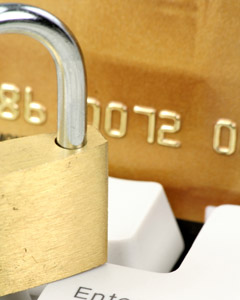- Category: November - December 2009
 As e-commerce continues to grow in popularity, so is the number of people using online payment-processing services, with PayPal being the best-known service. However, it is definitely not the only such service around. Launched in 2006, Google Checkout is another online checkout system that lets people make purchases from participating merchants using a single sign-in system. With privacy and security being top-most in the mind of online users, just how safe is Google Checkout?
As e-commerce continues to grow in popularity, so is the number of people using online payment-processing services, with PayPal being the best-known service. However, it is definitely not the only such service around. Launched in 2006, Google Checkout is another online checkout system that lets people make purchases from participating merchants using a single sign-in system. With privacy and security being top-most in the mind of online users, just how safe is Google Checkout?
Google Checkout actually has several layers of safety to protect both buyers and sellers. This includes:
PCI Compliance
Google Checkout is certified as Level 1 Payment Card Industry (PCI) compliant. This essentially means that the service has a very secure network for credit card transactions. This level of PCI certification also requires that the service protects cardholder data and has control measures in place. Google Checkout is also subject to an annual on-site security review and audit to confirm its compliance.
SSL Technology
Purchase information is encrypted during transmission with industry-standard SSL (secure socket layer) technology.
Seller Safety
The Google Checkout service takes several steps to ensure that sellers and merchants who use the program are safe and legitimate. All merchants are required to have a Merchant ID which is used to secure all communications between Google and the seller. In addition, Google also uses API authentication and digital signatures when setting up shopping carts and conducting online transactions. Besides bolstering safety, it also helps automate the process for sellers.
Buyer Safety
In order to protect buyers, Google Checkout does not allow merchants to see a customer's credit card number. Instead, the customer provides credit card information to Google Checkout when creating a new account, and the service routes payments directly to the merchant's designated account. In addition, Google won't disclose personally identifiable information about their buyers’ purchase history to advertisers or merchants. With Google Checkout, buyers decide on a seller-by-seller basis when they place an order whether they would like to keep their email address confidential or receive emails from the seller.
At the buyer’s request, Google will keep their email address confidential on an order-by-order basis. This is accomplished by creating an anonymous email forwarding address which buyers’ may disable at any time. When placing their order, buyers simply select ‘keep your email address private’ and Google will then forward the seller's emails to them without sharing the buyers’ real email address.
Fraud Protection
Google Checkout offers strong fraud-protection policies. In fact, the service has several Buyer Credit Verification features for merchants, including verification of billing and shipping addresses and Card Verification Value (CVV) confirmation. Also in place is an advanced risk model that Google uses to detect fraud by buyers. As soon as a fraudulent purchase is detected, the order will be canceled along with other transactions in a merchant's store that have used the same credit card information.
Chargeback Protection
For Google Checkout merchants, the service offers both chargeback protection and a payment guarantee policy. In the chargeback protection program, Google reviews each chargeback to a merchant's account to determine eligibility and, if necessary, disputes the charges on the merchant's behalf. Their payment guarantee policy assures sellers that they will be reimbursed for unwarranted claims of "non-receipt of goods" or "unauthorized" charges.
By Shanti Anne Morais


